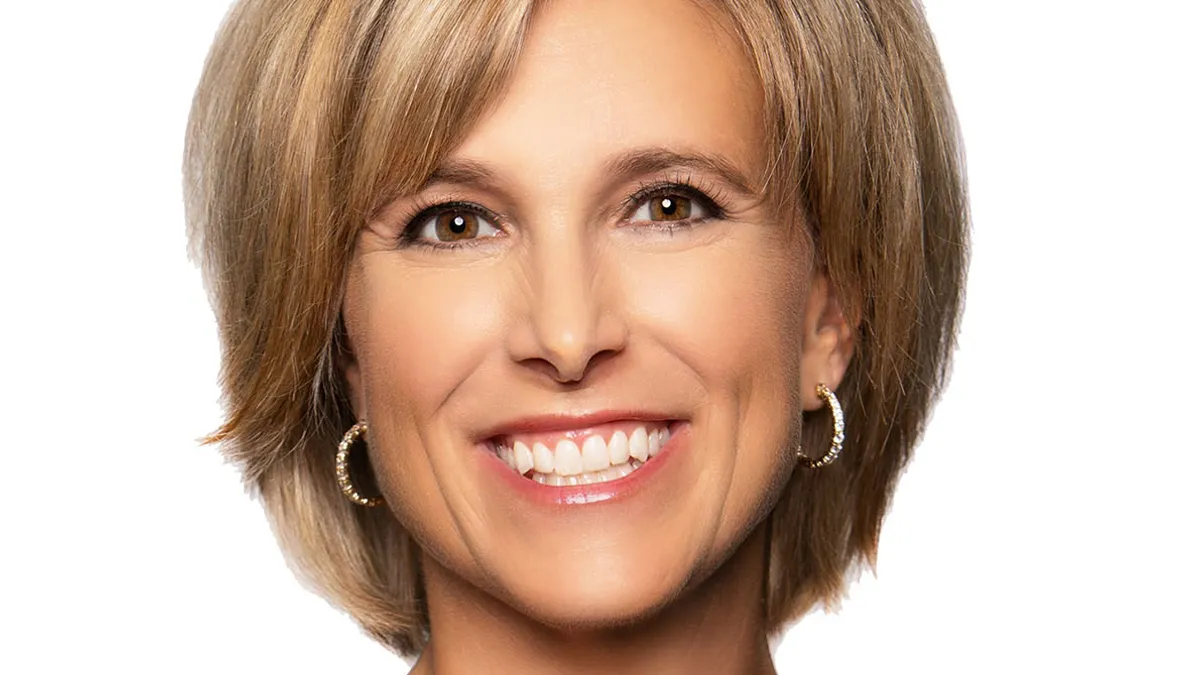After Worldpay breaks away from its current Fidelity National Information Services parent, it will target e-commerce for growth, FIS CEO Stephanie Ferris said this week.
While providing services to e-commerce merchants currently accounts for about a third of Worldpay’s business, Ferris expects that percentage jump to about half of Worldpay’s business in the future, she said during a Morgan Stanley investor conference on Monday.
“That's really one of the biggest strategic assets for Worldpay, as they go forward,” she said at the conference. “It’s about 30% of the business today. I think we’re expecting over the next two or three years, organically, it would be about 50.”
Aside from organic growth, Jacksonville, Florida-based FIS has said repeatedly that Worldpay will engage in an acquisition strategy to grow too, and Ferris reiterated that plan. While valuations for publicly-traded companies may still be high, private valuations are moving lower, she asserted. Furthermore, Worldpay is likely to pursue targets that aren’t necessarily where competitors are focused, she said, perhaps allowing it to find better pricing.
“There’s going to be big buying opportunities across the board over the next 12 to 18 months, especially as a lot of these one-hit wonders are really starting to look at cash flow, and can they make money,” she said.
Nonetheless, Worldpay won’t make any acquisitions this year or before it’s completely spun off from FIS early next year, Ferris said. The spin-off is on track to be completed in the first quarter of next year.
At the moment, Worldpay is mainly operating separately from the other FIS businesses, namely the banking and capital markets businesses that will remain after the spin-off. FIS acquired Worldpay for $35 billion in 2019.
“Worldpay has been growing ~20%+ in eComm, and we expect strong growth to continue, with the added benefit of FIS’ international banks as a possible channel,” analysts at the research arm of financial firm Robert W. Baird said in a note to clients on Monday.
Ferris called Worldpay the largest payments processor in the world, but pointed to plenty of competition. Global e-commerce Dutch rival Adyen, U.S. banking giant JPMorgan Chase and digital payments pioneer PayPal’s Braintree unit are all competitors, she said.
Worldpay makes gains principally by taking business from local domestic acquirers, Ferris said. It’s difficult for them and other smaller players to compete with Worldpay, which operates in about 120 currencies and 200 alternative payment methods, she said.
With respect to the health of consumer demand vis-a-vis the Worldpay business, Ferris said consumer demand hasn’t flagged as much as the company expected earlier this year. “We aren’t seeing a consumer slowdown,” she said, noting people are spending less on goods and more on travel and restaurant experiences.
Ferris predicted that back-to-school spending will be a harbinger for the yearend holiday spending season.
She reiterated that Charles Drucker, with whom she worked previously in the C-suite at Worldpay before it was a part of FIS, is well-equipped to lead Worldpay as CEO after the spin-off.
“He’s going to need M&A capital,” she said of Drucker, noting that he has run the Worldpay business in the past, demonstrating he can identify acquisitions and drive down debt. He may also decide to carve out a new strategic direction over the next couple of years, she said, without providing additional details.
As for the banking side of FIS’s business, the company last week bought the assets of a small business that will be additive there, in what was essentially a technology and talent acquisition, Ferris said, calling it an “immaterial” transaction. She said she doesn’t consider that purchase part of the company’s M&A strategy. It was an apparent reference to the purchase last week of the San Francisco banking-as-a-service startup Bond, though she didn’t name the business.
“Bond will integrate with FIS’s banking capabilities and bring value to existing and new relationships,” the Baird analysts said in their note.












